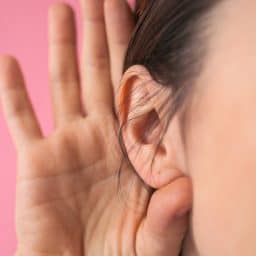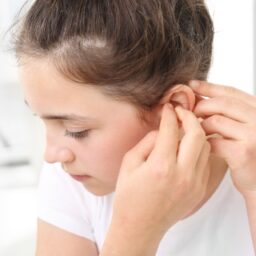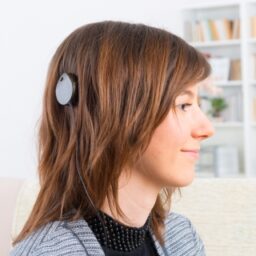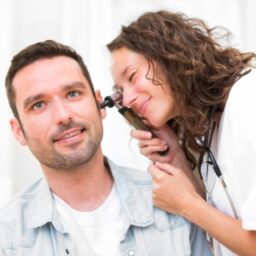What is Unilateral Hearing Loss?

What is Single Sided Deafness? Sometimes referred to as unilateral hearing loss, single sided deafness is a condition in which an individual experiences hearing loss in only one ear but can hear normally out of the other ear. While most patients with a hearing impairment suffer from bilateral (two-sided) hearing loss, SSD affects approximately 60,000…
What is Sudden Hearing Loss?

For most people who experience hearing loss, the condition comes on gradually over a period of years. In rare cases, an abrupt loss of hearing occurs with little or no warning. This condition is known as sudden sensorineural hearing loss (SSHL). What is Sudden Deafness? Sudden deafness is an unexplained and rapid hearing loss that…
What is Noise Induced Hearing Loss?

How Can Sounds Hurt Your Ears? Background sound is a constant in our busy lives. Normally, background noises are at safe levels that do not negatively impact our hearing. But repeated exposure to noise above 85 decibels (dB) can cause noise induced hearing loss. The louder the sound, the less amount of time it takes…
Holiday Traveling Tips for The Hearing Impaired

And just like that, the holidays are in full swing! With Halloween over and done with, it’s now time to prepare for Thanksgiving and Christmas. Like most Americans, this time of year is highly anticipated, as the holiday season allows us to see family and friends! If you’re planning to take a bus, car, train, or plane…
Custom Hearing Protection to Prevent Swimmer’s Ear and Premature Hearing Loss

Do you develop chronic ear infections after swimming in a pool, lake, or the ocean? Do you have a profession that exposes your ears to loud noises frequently? If you answered yes to either or both of these questions, you may benefit from simple medical tools that offer hearing protection, like a custom swim mold…
Understanding Hearing Screenings at School
Like many health problems, conditions of the ears are best treated when diagnosed early. For this reason, the state of Arizona has legislation in place that requires schools to provide screenings for hearing disorders. Students typically have their hearing tested in kindergarten with subsequent hearing tests occurring each year until the second grade. After these…
Noise Levels in Nightclubs May Increase Risk of Hearing Loss

Hearing loss has become an increasingly popular topic in the health care space, especially since more and more people are suffering from this condition at younger ages. According to researchers from Southern California, a person’s lifestyle choices may lead to early onset hearing loss. In the past, we wrote about the negative health effects frequent…
Can Headphones Cause Hearing Loss?
Hearing loss is a serious health concern that, until now, was thought to affect older generations exclusively. Various studies have found otherwise, and according to the American Osteopathic Association (AOA), one in five teens today experiences some level of hearing loss. This is a frightening statistic that should not be taken lightly, especially since there…
How Does A Cochlear Implant Work?

Before understanding how a cochlear implant works, you must first understand what a cochlear implant is. Contrary to popular belief, a cochlear implant is not a hearing aid that amplifies sound for people who are hard of hearing. This unique device is surgically implanted into the ear to help those who are profoundly deaf or…
What Is An Audiologist?

Audiologists are specially trained health care professionals who diagnose, manage, and treat problems specific to one’s ears, most commonly, hearing and balance issues. An audiologist has received either their Doctorate in Audiology (Au.D.), or their Master’s degree in Audiology from an accredited, university-based graduate program. Individuals with the following conditions may require the medical advice…